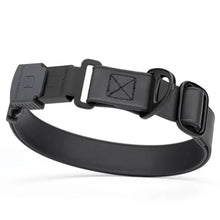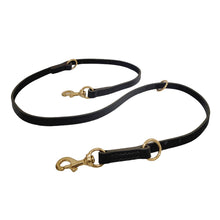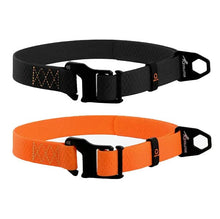What To Do Before Bringing Home A German Shepherd Puppy

Do this before even deciding on a puppy. Sit everyone down and discuss the rules and roles that everyone will be taking. Who is the main care provider? What are rules that need to be established? Is the puppy allowed to be on the couch? The bed? Are there any rooms, workshops, garages, barns or buildings the dog isn't allowed to be in? Get this stuff out of the way early so everyone knows what is expected of them, and so that you can reach a general consensus on what to teach the puppy once it arrives.

Pick up the necessary supplies.
Make sure you have all of the basics taken care of:
Crate.
Water and Food Bowls.
Collar and Leash.
Bed.
Chew Toys.
Food.
Once those are taken care of, keep in mind that you'll still need to purchase grooming tools, training collars, training treats and toys, such as a ball on a rope and tugs, tags or getting microchipping done etc. Making sure your new puppy will be happy, healthy, comfortable, mentally stimulated, and well trained definitely costs a few dollars and requires enough gear to fill up a medium-sized tote or better.

Prep your home.
You're bringing in a small terror ball of destruction inside of your home. Keep cords safely out of the way. Anything that's expensive and breakable, chewable, or anything less than immortal should be put up high, or in a room the puppy has no access to.
Research the plants in your home to make sure they're not poisonous to dogs. Keep your medications stored away safely. Keep all dangerous chemicals locked up, or up high out of reach.
Try to close off an area of your home where you spend the most time so your puppy can spend time with you and the family without being able to wander freely and get into trouble.

Look for home care.
If you can take a week or two off, that's phenomenal. It'll help you bond with your puppy and give you a head start on potty training. But, if you work, even if you take time off, you'll have to return to work eventually. Make sure you have arrangements put in place to help when you're not home. If you have family members or friends who can help with letting your new puppy outside to use the bathroom, that's great. If not, you'll need to look into dog walkers, pet sitters, doggy daycares etc. If someone will be coming to your home to help out, make sure you get a key made for them.

Find a good trainer.
All trainers are good trainers in their own minds, so look for ones who compete in obedience or protection sports preferably. They don't just talk about training, they do it, and compete against their peers. Such a trainer will almost always be better and more knowledgeable than a trainer who got a certificate in 2-8 weeks but has never competed. Competition helps trainers understand where they are weak, and there's usually someone around willing to help them strengthen their weaknesses. These are the people you want to employ to help you.
Once you've found a good trainer, stick with them. If you're doing classes, finish the classes. If you did boarding and training, make sure you bring the dog back to that trainer for issues. Half a program, or passing a dog from trainer to trainer is just going to cause a lot of regret later. That said, if your trainer isn't knowledgeable enough to tackle specific issues, or isn't as good as you thought, it's perfectly okay to seek help elsewhere. A good trainer knows their limitations and what they excel at. You shouldn't expect an obedience trainer to be able to teach your dog to compete in protection sports down the line if they don't have experience in that arena.

Pick a reputable breeder.
This is the most important part of the list. You always hear that you need to go to a reputable breeder, but what does that truly mean? What makes someone a reputable breeder?
A reputable breeder always gets his breeding stock's hips and elbows x-rayed and certified by PennHip, OFA, or the organization of the dog's home country if they're from Europe or elsewhere. Anyone who cannot produce documents proving a dog's hips are normal with no signs of hip/elbow dysplasia or better, isn't a reputable breeder and should instantly be removed from your list of prospective breeders.
Reputable breeders have a purpose to breed. They have a goal they want realized that is more than making a quick buck. Good working line breeders put an emphasis on health, strong nerves, working ability and drive, so they can produce solid working dogs. Good show line breeders breed with the same ideals, but there's a bit less focus on drive and working ability. There are also some breeders who specifically focus on producing good family pets that they describe as medium to low drive, healthy and medium of character (neither hard, nor soft of temperament). It's up to you which you pick, but all should have health testing done and be stable dogs who aren't fearful or outwardly aggressive.

Reputable breeders are obsessed with cleanliness and health. They keep their whelping quarters tidy and their pup's health and well-being are their #1 priority above all else. Your puppy should've received a "Well Puppy" checkup prior to coming home and should have a vaccination history. Puppies may also come microchipped or tattooed for identification, although ear tattoos are becoming more and more rare.
Reputable breeders only breed dogs that are registered or registerable in your country. If you import a puppy from Europe, it will not have American Kennel Club or Canadian Kennel Club papers, for example. But they should be registered with the FCI and those papers are transferable to both the AKC and CKC. "Purebred German Shepherds, no papers" means that person isn't a reputable breeder who has thought out their program and takes breeding seriously.

Ask a few, short questions about a breeders lines and what you can expect from a puppy that they produce. Breeders have lives and jobs. They will not be able to talk to you for hours on end to answer questions. So keep everything short and simple. Ask questions like "What are you expecting from this litter?" And "What are the positives and negatives with your lines?" An honest breeder is a good thing, but one who knows and admits to the faults in their lines is rare indeed. An answer like "Well, my lines have great drive and working aptitude, but their sire tends to throw puppies that are on the lower side of the standard in size" is an honest answer. The dogs are still in standard, they still fit what the breeder wants, and their only complaint is that they get smaller pups than they'd like every now and then. No dog, no line, and no breeder is perfect. Being honest about those things says a lot about the person you trust to give your money to, and trust for them to give you a healthy, stable puppy in return.
*Adoption: If you adopt a pup from a rescue, we recommend you go see this puppy in person and make sure it's a match for you. We also want to emphasize that you won't have a breeder to call with questions down the line. You'll know nothing about the pup's health history. If you choose adoption, you don't know what issues may arise down the road, so you need to be prepared for vet costs and insure you have the best trainer available in your area.

We hope this helps any prospective puppy buyers or rescuers. These are some steps you can take before ever bringing a puppy home. Did we miss any? Let us know in the comments! Thank you, and please leave a like and share.
You may also like: Are German Shepherds Good Family Dogs?






















